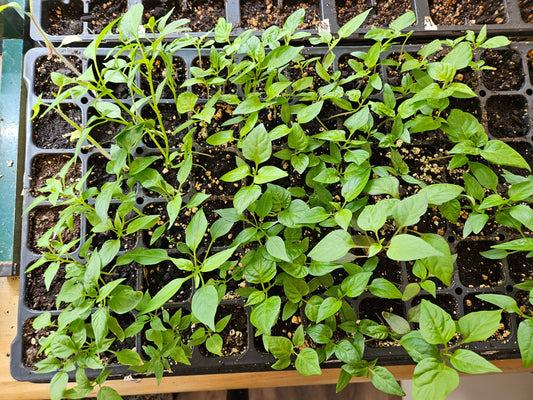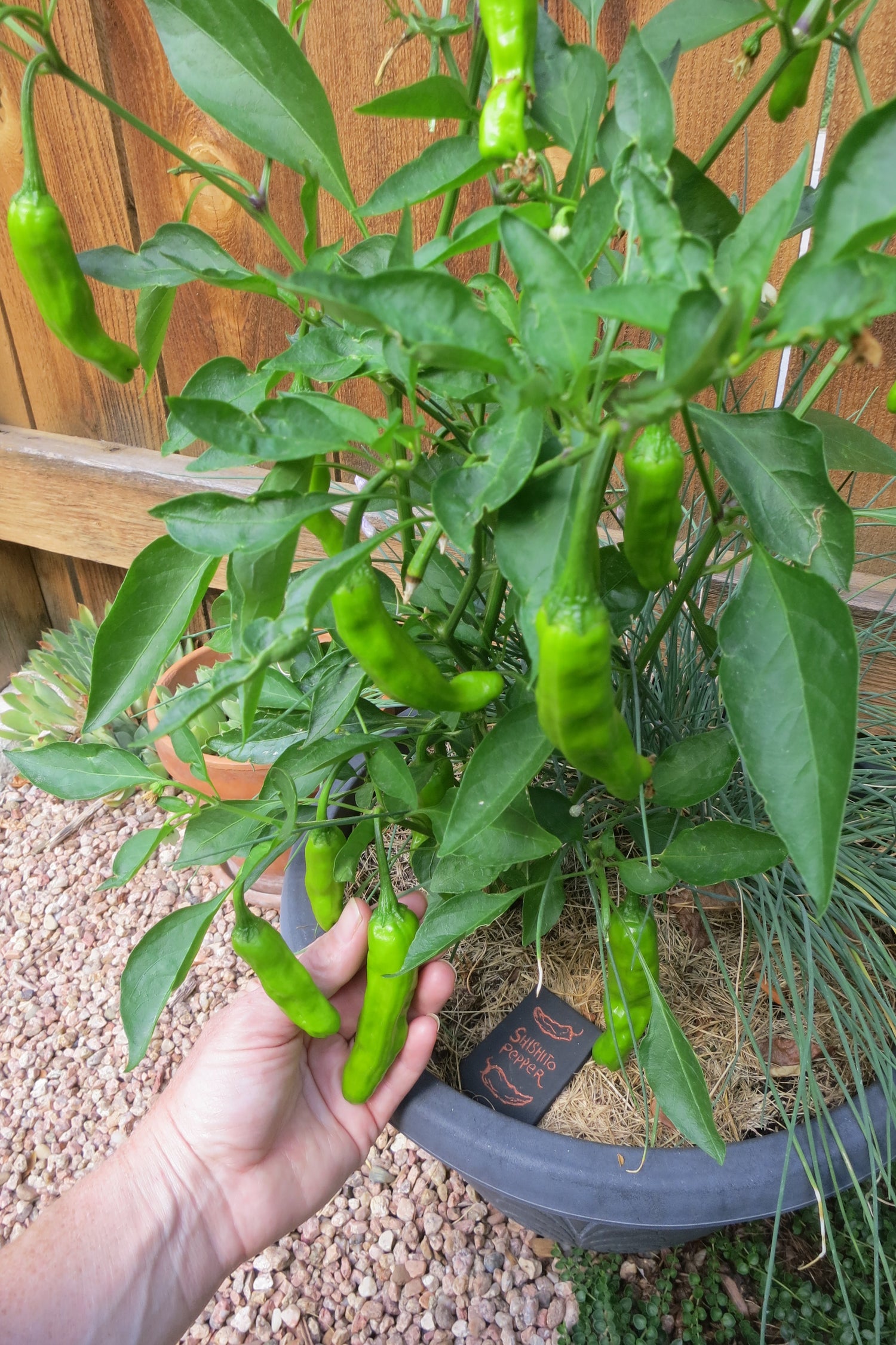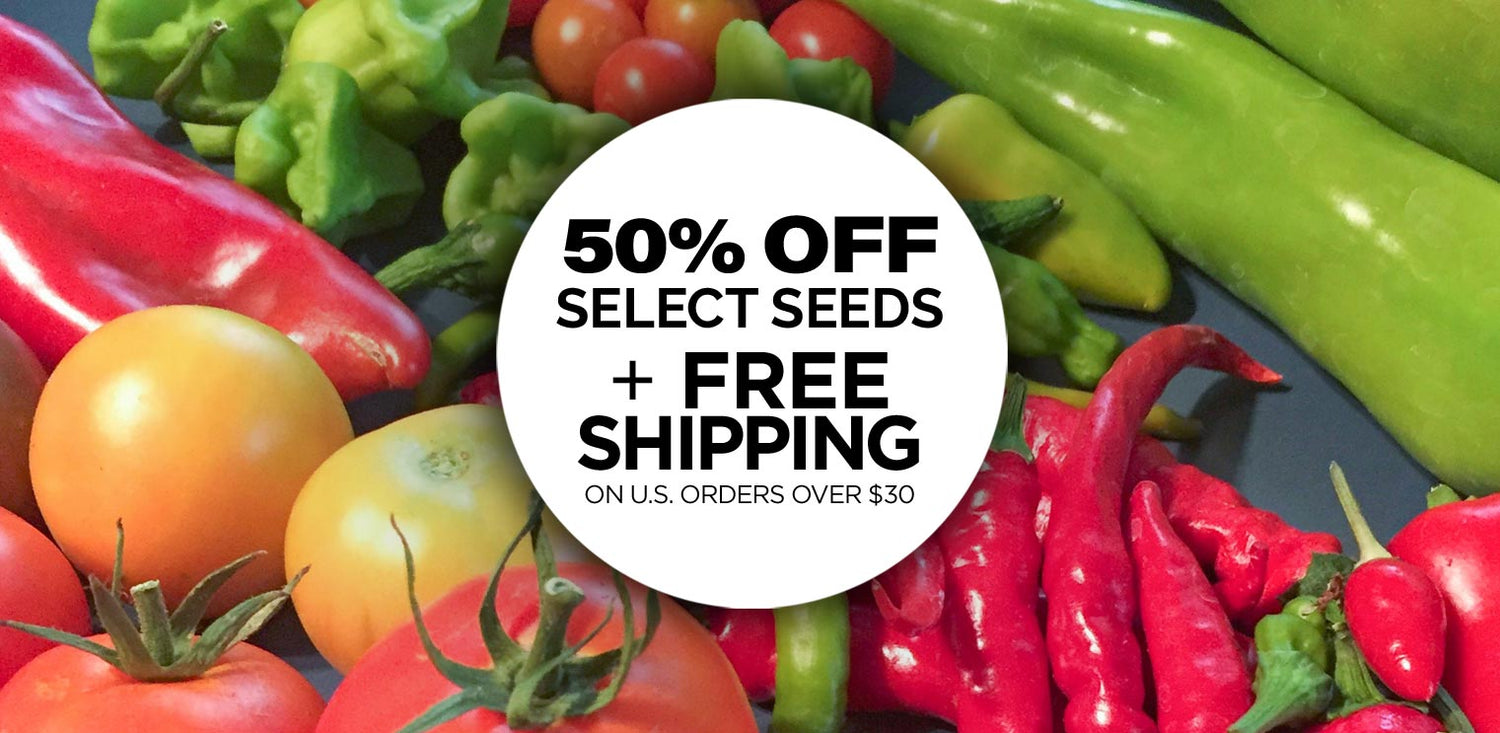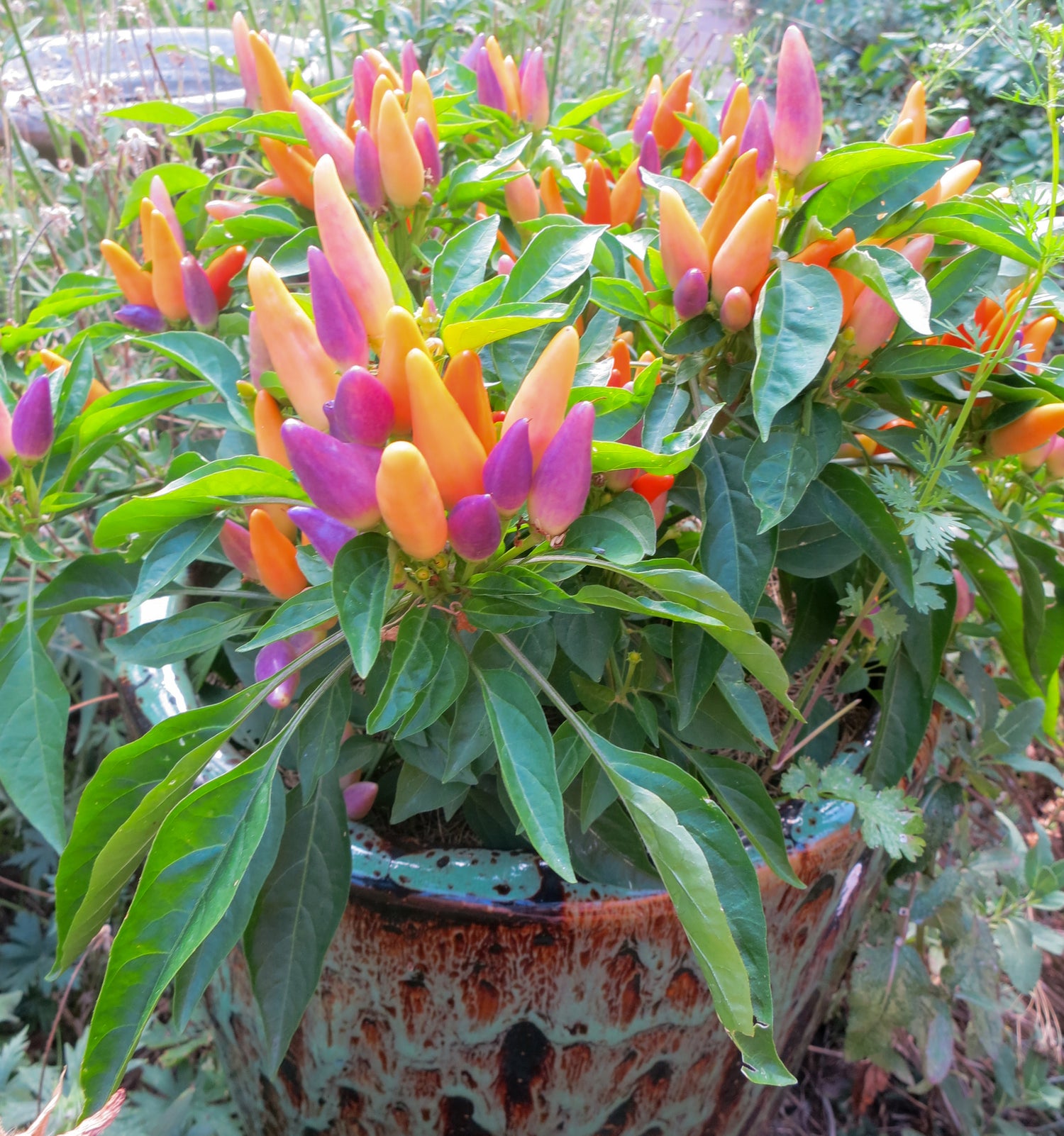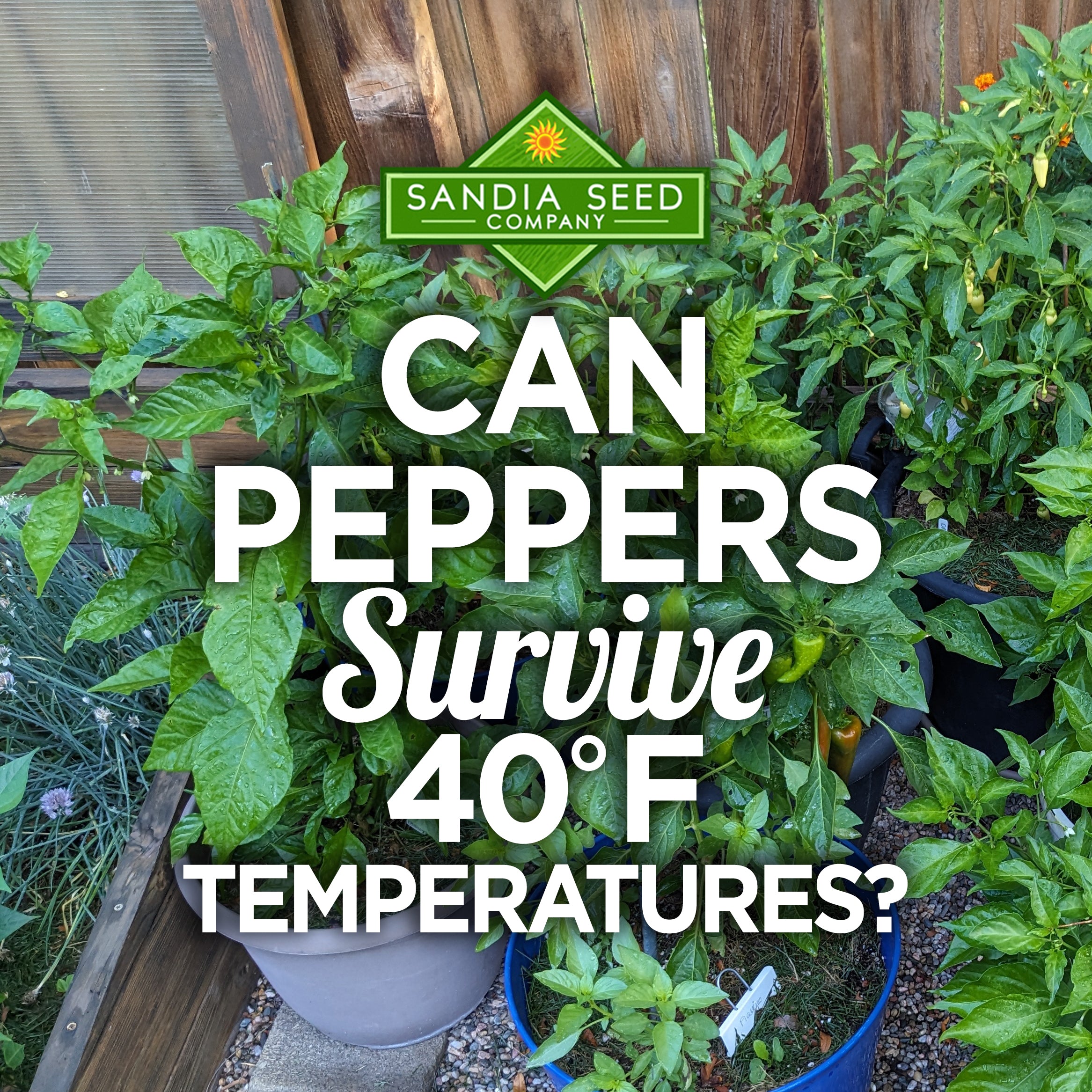
People have asked, can peppers survive 40˚ F temperatures?

Most peppers are not happy when temperatures drop below 50-60˚ F.
If you live in a short season climate, we recommend starting pepper seeds indoors 6-8 weeks before the last frost of the spring is expected, and wait to transplant outside until it's warmed up to at least 55-60˚ F at night consistently and all chance of frost has passed.
Planting peppers outside early in the spring with no protection and cold weather below 50˚ F can stunt the plants' growth.
So keep pepper plants cozy indoors until it warms up in the spring, or, you could also protect them with hoop houses, greenhouses, water walls, or other season extenders to keep them warm if spring temperatures get cooler than 50-60˚ F at night.
Winter Approaching?
If you're trying to squeeze a few more days/weeks out of your pepper harvest and the temperatures are dropping at or below 40˚ F, we recommend covering your peppers with frost cloth or a small hoop house with greenhouse film to keep them warm during the cold nights if you can to help them keep producing. Once they get cold, they won't be producing many more peppers, but you can try to ripen peppers on the plants a little longer with a little extra cover. :)
We have a ton more tips for starting pepper seeds, and growing healthy organic pepper plants. Learn more about How to Grow Peppers »
Cooler Weather Peppers
There are a few peppers that don't mind cooler temperatures (but NOT freezing):
#1 Cool Weather Pepper:
A great cool weather tolerant pepper is the Bulgarian Carrot.
Bulgarian Carrot
This variety came to America in the 1970's from Bulgaria and is well adapted to the cool Scandinavian climate. They set fruit best between 65-85°F, so 40˚ F would be a little cold from them, but they would likely survive better than most peppers.
The Bulgarian Carrot Chile pepper plant itself is adapted to cooler northern climates and grows well even in a cooler summer.
These orange peppers are great for containers and easy to grow. You could keep these in a container, and leave them out in the autumn and they will continue to thrive – especially if you bring them inside during any frosts! You could even grow them indoors over the winter if you have a bright sunny spot.
It's easy to see how this heirloom pepper got its name.The long tapered orange fruits might fool one into thinking it is a sweet carrot, but that is not the case at over 12,000 Scoville Heat Units!
Bright orange 3" long peppers are very hot with fruity flavor. The small 18" plants become completely covered with fruit and are quite charming in pots!
#2 Cool Weather Pepper:
Another cooler-weather option for peppers is the FASTEST growing pepper we have in our collection, the delicious sweet Chocolate Bell Pepper
Sweet Chocolate Bell Pepper
A chocolate-colored bell pepper with a very sweet flavor. It ripens from green to dark brown on the outside and brick red flesh on the inside. This is our earliest pepper to harvest, with the first peppers ripening at around 57 days.
You get loads of 3-4” sweet bell peppers on this pepper plant that tolerates cool nights better than most other peppers.
We'd say keep them warmer than 40 degrees if possible, but they would likely survive better than other peppers if it were to dip that low at night.
This is the fastest growing pepper so we think every garden should have one so you can enjoy the crunchy sweetness of these Chocolate Bell peppers earlier in the season!
This early bell pepper was bred by Elwyn Meader and introduced by the University of New Hampshire Agricultural Experiment Station in 1965. The chocolate color skin and the red flesh are beautiful raw in salads and roasted in other dishes.
#3 Cool Weather Pepper:
The Manzano Pepper (also known as the Orange Rocoto Pepper) is a cool weather tolerant pepper, and actually prefers temperatures between 45 to 60˚ degrees Fahrenheit.
So it would likely do just fine at 40˚ F for short periods of time, as long as it doesn't dip below freezing.
These are long-lived peppers, too, and, if protected from frost, Manzano Pepper Plants can produce for 15 years and grow more than 10’ high. Some of our customers grow them in their greenhouses year-round for a constant supply of spice.
The Rocoto pepper is also known as the "Apple Chile," and is very unique because it has pods with black seeds, and the plant has hairy leaves. It blooms with beautiful purple six-point star shaped flowers. It has a small 2” apple shape, and pod flesh is thick, and the flavor is sweet with a citrus taste and super hot kick at a Scoville rating of 30,000. It makes great salsa and hot sauces.
The Manzano Pepper is among the oldest of domesticated chiles being cultivated for thousands of years, and it actually likes cool weather as it comes from the Andean mountain slopes in South America.
Part Shade:
If grown in hotter climates, some shade is necessary to keep this pepper happy and fruiting.

As we mentioned above, there are a few varieties of peppers including the Rocoto, Bulgarian Carrot and the Sweet Chocolate Bell Pepper, that can tolerate cool nights better than other peppers, but it's ideal to keep them a little warmer than 40˚ F to keep them happy.






